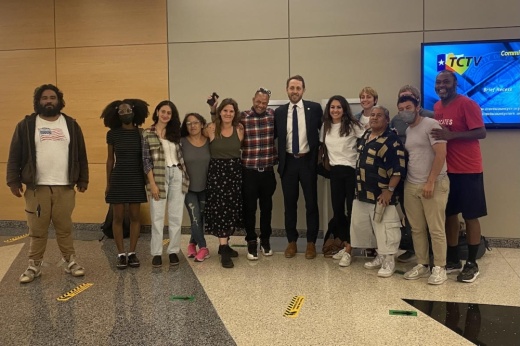Travis County Commissioners Court declared drug overdoses a public health crisis May 24 following a report that showed drug toxicity was the No. 1 cause of accidental death in Travis County in 2021.
The declaration was accompanied by $350,000 in funding for overdose reversal and addiction treatment medication as well as other public health initiatives to address the crisis.
“It is clear opioid deaths are a hair on fire problem in our community,” Commissioner Brigid Shea said.
On May 11, the Travis County Medical Examiner’s Office released a report showing 308 people died from overdosing in Travis County in 2021, up more than 50 deaths from 2020. Of those deaths, 118 were related to fentanyl, a 237% increase from 2020 to 2021.
The report shows more people died from drug toxicity than from falls, car crashes or homicides.
Travis County Judge Andy Brown and other county representatives have been working with the Texas Harm Reduction Alliance in the past weeks to draft the policy following a town hall the organization held to bring awareness to the need for action around the crisis.
The Texas Harm Reduction Alliance and other advocacy groups have been lobbying the commissioners for both the public health declaration and funds to increasing naloxone—often referred to by the brand name Narcan, which can be used to save individuals who are overdosing—and methadone—a drug used to treat opioid addiction—access.
THRA is a nonprofit organization that advocates for harm reduction care. Harm reduction practices include destigmatizing drug use to ensure equitable care for individuals, providing resources such as clean needles and overdose prevention medicine, medical supplies such as wound care, education and other evidence-based care for individuals who use drugs.
During the public comment period, several local advocates from other organizations, such as as the Other Ones, a nonprofit that addresses homelessness in the Austin area, and the Sunrise Homeless Navigation Center—addressed the court to ask that the funding for those medicines be provided to community organizations instead of the county’s health organizations.
Travis County Judge Andy Brown said it was not his intention for the funding to be directed to Integral Care, the mental health arm of Central Health, the County’s health district.
“This is a time when we need to act immediately, if not yesterday. ... I support giving this money to the Texas Harm Reduction Alliance,” Commissioner Ann Howard said.
Howard also advocated for the money to be distributed to other organizations, including the Sunrise Homeless Navigation Center, as well.
Pilar Sanchez, county executive of health and human services, cautioned that there are legal restraints around how the money can be distributed.
“It’s going to be slower than you want, but I recognize that this is a crisis, and we will work quickly,” Sanchez said.
The resolution also requires county staff to present information to the commissioners once a month on the topic and to hold regular meetings with the community to hear concerns.
“We are talking about a paradigm shift. We talk about our numbers growing, but we need to understand from the community, like we did during the pandemic, where we need those resources,” Commissioner Jeff Travillion said.
Brown said the county intends to offset the cost using funds received from lawsuits against opioid manufacturers.





